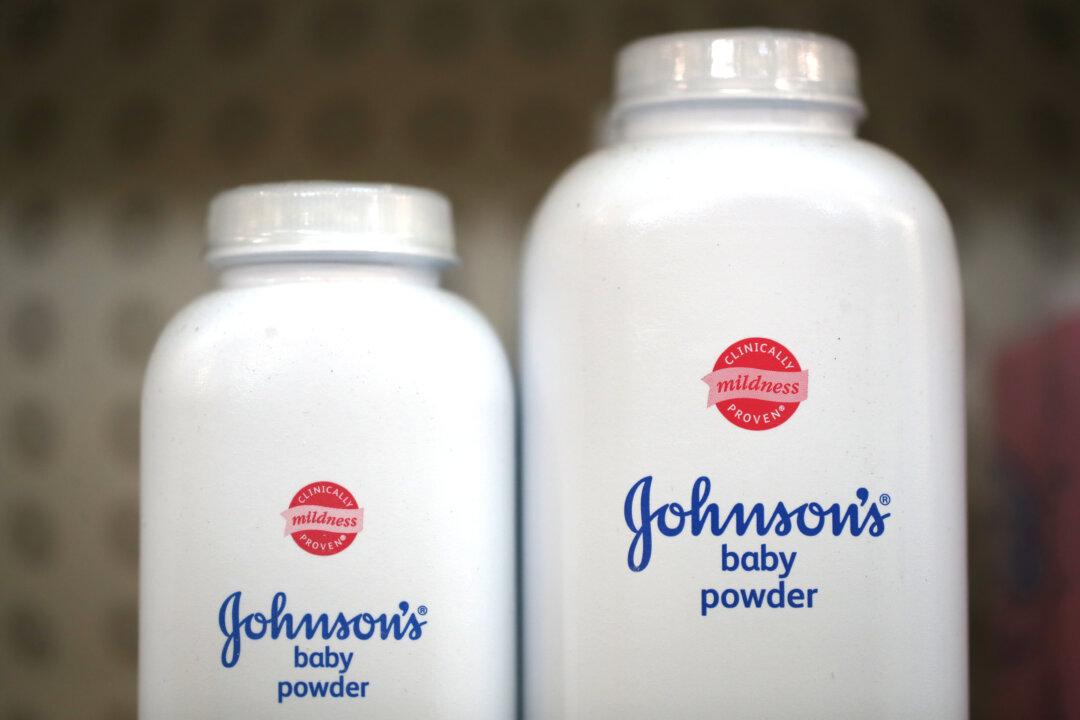Drugmaker Johnson & Johnson is asking the Supreme Court to review a $2.11 billion jury verdict from Missouri over baby powder it produced that allegedly contained asbestos that caused ovarian cancer.
In addition to a vaccine used against the CCP virus, which causes the disease COVID-19, the 135-year-old New Jersey-based company has been known for making a variety of talc-based consumer products such as its iconic baby powder, which is the subject of the litigation.





